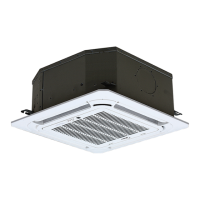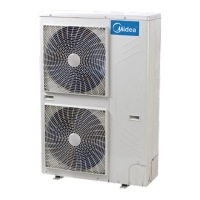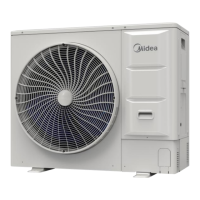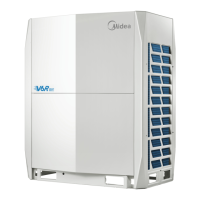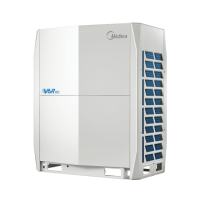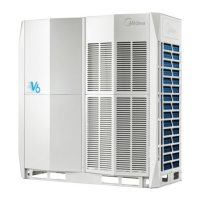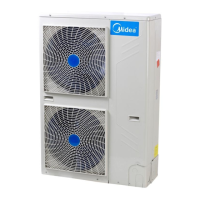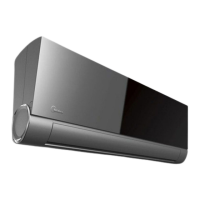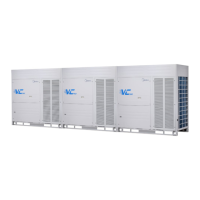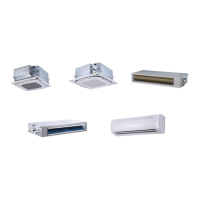Do you have a question about the Midea V5 X VRF Series and is the answer not in the manual?
Details energy saving features, DC inverter compressors, DC fan motors, and high efficiency heat exchangers.
Describes outdoor unit lineup, standard, and space-saving combinations for different capacities.
Lists various indoor unit types (cassettes, ducted, wall-mounted) and their capacities (kW).
Explains the model naming convention for outdoor units, breaking down each component.
Outlines the model selection process, including system design, unit selection, and capacity calculations.
Details how to select indoor and outdoor units based on given cooling load conditions and capacity tables.
Provides detailed technical specifications for outdoor units, including power supply, capacities, compressor, and fan motors.
Shows overall and section dimensions for various outdoor unit models (8-18HP) in millimeters.
Specifies required clearances for installation and maintenance of outdoor units to ensure proper airflow.
Illustrates refrigerant piping diagrams for different outdoor unit models (8, 10, 12HP and 14, 16, 18HP).
Shows electrical wiring diagrams for outdoor units and explains field wiring connections.
Lists electrical data for various models, including voltage, current, and power ratings.
Provides comprehensive cooling and heating capacity tables for different outdoor units and operating conditions.
Defines the acceptable outdoor temperature ranges for continuous and intermittent operation in cooling and heating.
Lists the sound pressure levels (dB(A)) for different outdoor unit models.
Details standard and optional accessories included with the units.
Describes key functional parts and safety devices like compressors, sensors, and valves.
Covers procedures and cautions for installing indoor and outdoor units, including hoisting.
Provides guidelines for selecting suitable installation locations and constructing foundations for outdoor units.
Outlines permitted values for piping lengths, level differences, and selection criteria.
Covers basic requirements, principles, and procedures for installing refrigerant piping.
Covers selecting refrigerant pipes, nitrogen filling for protection, and making pipe joints.
Explains the correct procedure and tools for cutting copper pipes to avoid deformation.
Details the function, purpose, risks, and procedure for flushing copper pipes with pressurized gas.
Covers installation principles, requirements, and advantages/disadvantages of drainage pipe connections.
Covers wiring terminal instructions, electrical characteristics, and power supply requirements.
Details installation of control lines, signal wires, and wiring examples for centralized control.
Lists inspection, preparation, and commissioning steps for trial runs of single and multiple outdoor units.
Identifies and explains the functions of various ports and LEDs on the main PCB.
Lists error codes with their content, possible causes, and troubleshooting steps.
Provides diagnostic flowcharts for common errors like communication failures, phase sequence issues, and sensor malfunctions.
| Brand | Midea |
|---|---|
| Model | V5 X VRF Series |
| Category | Air Conditioner |
| Language | English |
